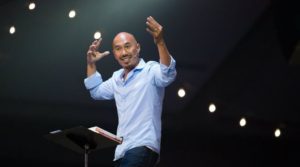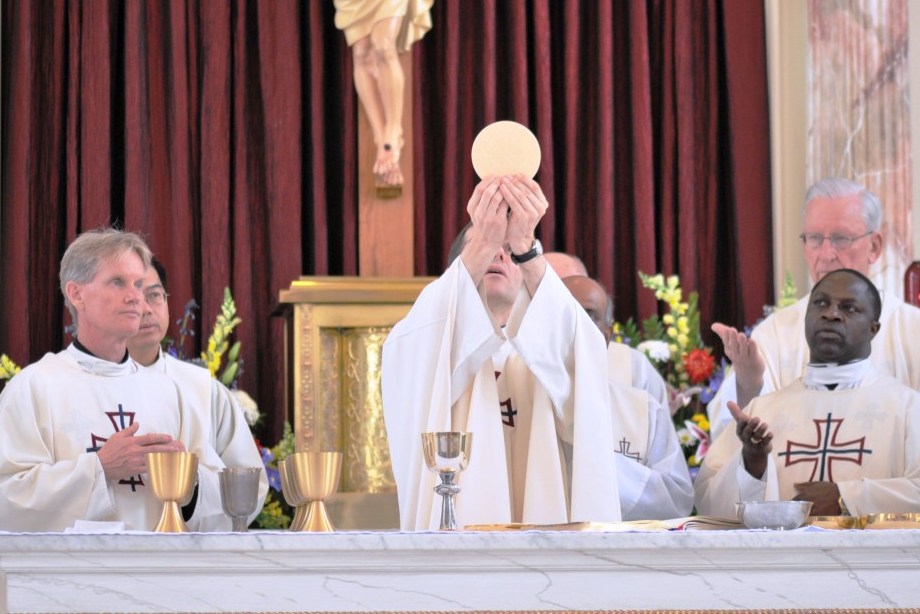Why Mass Is Boring? Understanding the Mass, the Last Supper, and Worship
Many Catholics, at some point, find themselves asking why Mass is boring—or worse, they simply stop attending altogether. But this perception often stems from a misunderstanding of what the Mass truly is.
A Common Complaint
At a recent dinner gathering, I overheard a Catholic man lamenting that the Catholic church is boring and dull. “It’s the same thing every week,” he said, explaining that he now attends his wife’s evangelical church, which he finds more exciting. This sentiment is shared by many Catholics who are drawn to Protestant services with modern music, charismatic preaching, and an emotionally charged atmosphere.
But is the Mass meant to entertain? Or is there a deeper reason for its structure, one that transcends the trappings of excitement and novelty? The Catholic Mass, far from being a performance designed to captivate an audience, is a sacred act of worship rooted in Scripture and tradition. It calls for active participation and contemplation, inviting the faithful to encounter Christ in the most profound way possible.
Ironically, despite claims from some Protestants that the Catholic Church is “unbiblical,” the Mass is thoroughly steeped in Scripture. It consists of three Bible readings: typically one from the Old Testament, one from the New Testament epistles, and a Gospel reading. These readings are organized in a three-year cycle, ensuring that over time, the vast majority of the Bible is proclaimed during the liturgy.
Furthermore, many of the prayers, responses, and hymns used during the Mass are either direct quotes or inspired by passages from Scripture. For example:
- The Gloria echoes the angels’ proclamation in Luke 2:14: “Glory to God in the highest, and on earth peace to people of good will.”
- The Sanctus (“Holy, Holy, Holy Lord God of hosts…”) is drawn from Isaiah 6:3 and Revelation 4:8.
- The Lamb of God prayer, said before Communion, reflects John 1:29, where John the Baptist proclaims Jesus as “the Lamb of God, who takes away the sin of the world.”
The structure of the Mass itself mirrors key moments in salvation history. The Liturgy of the Word recalls how God revealed Himself through the Law, the Prophets, and, ultimately, through Christ. The Liturgy of the Eucharist fulfills Christ’s command at the Last Supper: “Do this in memory of me” (Luke 22:19).
This depth and connection to Scripture make the Mass more than just a gathering—it is a living encounter with Christ. Far from seeking to entertain, the Mass invites the faithful into the mystery of Christ’s sacrifice, fostering spiritual growth and communion with God.
The Mass: The Ultimate Act of Worship
The Mass is not just a Christian church service; it is the fulfillment of Christ’s command at the Last Supper: “Do this in memory of me” (Luke 22:19). At its core, the Mass is about worship, not entertainment. And worship, in its truest sense, requires an altar and a sacrifice—something unique to the Catholic Church.
Unlike Protestant services, which often emphasize the sermon and music, the Catholic Mass centers on the Eucharist. Bishop Robert Barron explains it well: “The high point of the Mass is not the homily—it is Christ in the Eucharist. You come to Mass for communion with Christ.” Sadly, even many Catholics fail to recognize this. The homily is largely a subjective experience and not the reason for the celebration.
Then there is worship; the idiom of the rock concert with added TED talk is scarcely adequate to convey the holiness of Gd, the beauty of worship, and the seriousness of the Christian faith. —Carl R. Trueman “foreword,” in Why do Protestants Convert?
The Last Supper and the Sacrifice
The roots of the Mass go back to the Last Supper, which was not merely a meal but the institution of the New Covenant. Christ, the unblemished lamb, offered himself as the perfect sacrifice for the sins of humanity. When Jesus said, “This is my body, which will be given for you” (1 Corinthians 11:24), he established the foundation of the Mass.
The Mass is not a re-sacrifice of Christ but an unbloody re-presentation of the one sacrifice of Calvary. This is why the altar is the centerpiece of Catholic worship. Without an altar, there can be no sacrifice, and without a sacrifice, there can be no true worship.
Worship vs. Prayer
It’s essential to distinguish between worship and prayer. Prayer can be offered anywhere, but worship requires a specific act of sacrifice. In the Mass, Catholics participate in the ultimate act of worship, uniting themselves to Christ’s sacrifice on the Cross. Protestant services, while often rich in prayer and praise, lack the sacrificial element that defines worship in the biblical and historical sense.
Why Do People Find the Mass Boring?
Many find the Mass uninspiring because they approach it with the wrong expectations. Modern society, with its emphasis on entertainment and instant gratification, has conditioned us to seek emotional highs. Protestant services often cater to this desire with engaging sermons, contemporary music, and a theatrical atmosphere.
The Catholic Mass, however, is not about entertainment; it’s about communion with God. It requires active participation, not passive observation. To fully appreciate the Mass, one must understand its profound significance:
- The Liturgy of the Word immerses us in Scripture, covering nearly the entire Bible over a three-year cycle.
- The Liturgy of the Eucharist unites us with Christ’s sacrifice, offering us the grace to transform our hearts.
Participate, Don’t Observe
Christ didn’t ask us to write his words in a book; he asked us to remember his death and resurrection through the Eucharist. Attending Mass is not about being entertained; it’s about encountering Christ. When we prepare ourselves—mentally, spiritually, and emotionally—to participate in the Mass, we open ourselves to the transformative power of God’s grace.
The Mass and the Early Church
The celebration of the Mass predates the Bible as we know it today. Early Christians, guided by the apostles, gathered for the “breaking of bread” (Acts 2:42). Historical documents like the Didache, written in the first century, provide instructions for the Eucharistic celebration, showing that the Mass has remained consistent since the time of the apostles.
The Protestant Reformation introduced changes that diverged from this ancient practice. Today, while many Protestant denominations hold Sunday services, these often lack the sacramental and sacrificial elements that define the Mass.
The popular evangelical pastor Francis Chan came to realize the importance of the Eucharist. 
“I didn’t know that for the first fifteen hundred years of church history, everyone saw [communion] as the literal body and blood of Christ, and it wasn’t until five hundred years ago that someone popularized a thought that it’s just a symbol and nothing more … For fifteen hundred years it was never one guy and his pulpit being the center of the church; it was the body and blood of Christ … I’ve been dreaming about this. I’ve been praying about this, going, man: I would love it if one day in our country, here in the US, people understood the body of Christ, that they were just a part of it, and they got excited to gather and partake of the body and blood of Christ.
Chan is not alone as many other protestants are looking at the history of the church and finding what they have been missing. In this video, Michael Cumbie, former Pentecostal clergyman gives an excellent and easy-to-understand explanation of the Mass that is eye-opening
Why You Shouldn’t Be Bored
When we understand the Mass as the ultimate act of worship—rooted in Christ’s sacrifice, the Last Supper, and the teachings of the apostles—it becomes impossible to view it as boring. Instead, it becomes a sacred drama in which we actively participate, bringing our lives, struggles, and joys to the altar.
Rather than expecting to be entertained, come to the Mass ready to engage in the holiest of prayers. As Catholics, we don’t simply attend Mass; we pray the Mass, uniting ourselves with Christ and receiving the spiritual nourishment we need to live as true disciples.
Conclusion
If you find the Mass boring, take a step back and reflect on its true purpose. The Mass is not about emotional highs or superficial entertainment; it’s about worship, sacrifice, and communion with Christ. Embrace the beauty of the Mass, and you’ll discover that it’s anything but boring—it’s the most profound encounter with God we can experience on this side of heaven.
“Behold, the Lamb of God, who takes away the sin of the world!
References:
Catechism of the Catholic Church, sections 1345–1355, for an explanation of the biblical roots of the Mass.
Hahn, Scott. The Lamb’s Supper: The Mass as Heaven on Earth, which explores the connections between the Mass and the Bible.
“Mass Readings,” USCCB, for daily and Sunday reading schedules rooted in Scripture.



